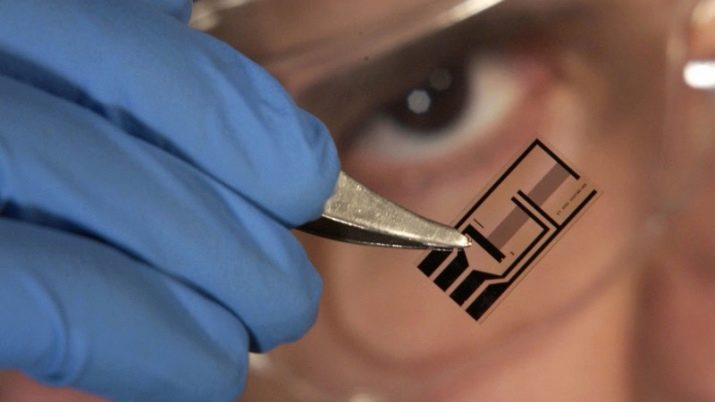The essence of the work of the driver and engineer, air traffic controller and auxiliary education teacher, security guard and designer is more or less clear even to schoolchildren. But it is equally important to know who such a technologist is and what this specialist does in practice.
The industrial profession has great prospects, because all the talk about the post-industrial world remains talk.
Who is this and what does it do?
A description of the profession of a technologist is worth starting with the fact that this is an extremely multifaceted and ramified area of activity. But in any case, regardless of the particular specialization, it is characterized by the "isolation" of the working cycle. A technology specialist is involved in a particular product, technology, production line, machine tool or something else at all stages. He participates in the creation process and gradually brings the matter to full use. Masters and engineers, direct assemblers and installers, draftsmen and many others are engaged in some private areas; technologists always think about the general, about the prospects.
The effective work of such specialists allows not only creating a new product or product, and not just reorganizing the methods of providing services. Technologists care about a combination of factors:
- economic effect;
- attractive design;
- reduction of labor and resource costs;
- clear distribution of responsibilities between staff;
- timing of work, sequence of actions.


Types of specialties
Design Technologist - it is an “elite” even against the background of other specialists in their field. Such professionals work mainly in industry institutes, in design bureaus. If they work directly in industry, then usually at the largest enterprises or organizations with a large share of innovation. Designing has more or less the same approaches, regardless of what exactly is being created - a metalworking workshop or a method for the production of cribs. In the process of work to be applied many advanced software products.
Technologist-artist (or rather, an artist-technologist) has nothing to do with the industry at all. But it is directly related to the organization of large-scale theatrical and concert performances. Without it, it is impossible to artistically design such events. Some are engaged in stage costumes, others think over the light. There are even technologists for dolls and separately for the stage.
But laboratory technologist works where chemical and biochemical processes associated with individual substances are critical. He can take both an analysis and an experiment, and evaluate the result of a reaction. In a sense, this is a private version of the profession of a chemist. But there is an alternative specialization - a physicist-technologist. Such a specialist is engaged in the latest scientific research with the prospect of their early implementation in everyday practice. Of course, the matter has not been limited to pure physics for a long time - methods of mathematical modeling will certainly be applied in the work. The power of computer modeling is “brought down” to the problem. Such specialists are expected in various engineering bureaus.
The position deserves special attention Leading Process Engineer. He directs the activities of other specialists related to the design and maintenance of equipment. It is he who also gives instructions on what and how to use it correctly.
If you need to do something, then just in which direction the engineering search will go depends on the leading technologist.

But Pharmacist - A professional whose shoulders lie in the solution of the most pressing problems of the pharmaceutical industry. Creating a new drug or modifying a previous one is not an easy job. However, when it comes to direct production, you still have to carefully work out the methodology. The approach used to create limited batches intended for laboratory and clinical trials does not always work on an industrial scale. Not to mention the fact that equipment is replaced from time to time, the requirements for the qualifications of employees are growing.
There is still a profession agronomist technologist. Such a specialist spends most of the time outdoors. The demand for this profession will remain until the industrial production of food products displaces traditional agriculture. But before that, at least another 100-150 years. Such specialists determine where what is growing, how to increase the efficiency of work in the field and not use the technique for nothing. But the technologist-economist is a much more desk worker. He will have to carefully deal with the features of various materials and equipment, components and a working tool. Only a careful study of all the nuances allows us to ensure a balance between economic and technical indicators of production.
In a separate category stands out nutrition technologist (or rather, a food service technologist - as this specialization is officially called). It is this professional who is responsible for ensuring that the food is not only tasty, but also absolutely safe. He develops standards for bookmarking and spending products, and then ensures that they are meticulously observed. The reputation that a particular institution will have directly depends on the efforts of the technologist.He will also have to constantly monitor the serviceability of kitchen equipment and tools, determine what and how workplaces should be equipped with, how much time should be allotted to a particular business.

Profession of Technology Analyst appeared as an answer to the challenges of our commercial time. This specialist is primarily concerned with evaluating how prepared products or services meet customer requirements. Related specialization - business analysis. Professionals in this field, of course, are well aware of modern information technology and the key nuances of the production of goods and the provision of services.
Metal Technologist - a much more traditional branch of the profession. It is customary to divide it into 2 more private subspecies: the technology of ferrous and non-ferrous metallurgy. Metal technologists often work to improve the performance of the main metallurgical furnaces. In everyday life, they make sure that the equipment is used as carefully as possible, and there are no special problems in its use. The most talented and persistent employees can even potentially develop new technology in metallurgy and metalworking.
If you look for a complete antipode to a metal technologist, then this will be primarily nanotechnologist. Such a specialist is at the forefront of new technologies, including those that can gradually replace traditional methods of processing materials. Nano-level technologies are used in various sectors of the economy. Undoubtedly, in the coming years and decades, their circle will grow significantly, and opportunities will increase.
The essence of nanotechnology is the application of an interdisciplinary approach; here it is impossible to remain within the framework of pure physics, chemistry, bionics, engineering or materials science, but everything is required immediately, and even a little more.

Responsibilities
A typical job description defines the tasks and functions of a technologist as follows:
- development of new technological methods, equipment and tools;
- assessment of the adequacy of the used base to modern requirements;
- drawing up equipment placement plans;
- determination of the optimal load per one unit of equipment and per employee;
- development of technological documentation for direct performers.
According to ETKS, the technologist also does everything to:
- the developed documentation was agreed with the structural divisions of the organization;
- technological and production discipline was maintained;
- appropriate precautions were taken in various cases;
- assembly diagrams and routings were drawn up correctly.
According to the professional standard, the duties of technologists also include:
- creation of new technological documents and adjustment of existing ones;
- verification of manufacturability of products;
- unification and typification of applied solutions;
- improving the interaction of units in the production process.
Another part of the responsibilities is:
- in increasing the automation and mechanization of processes;
- in assisting in the development of a rational personnel policy;
- in the selection of formalized algorithms for the development of industrial processes;
- in computer design of typical, group and unique objects.

Knowledge and skills
The key competencies for a good technologist are not just knowledge of documentation and algorithms “perfectly”, but also practical experience. The specialist must have excellent knowledge of the rules for making forecasts. He will have to study the documentation and industry regulations. Also, such a specialist will need to successfully work with subordinates, to help them improve their professional level. Finally, knowledge and skills also include:
- profile, features of the industry and a specific enterprise;
- statistical accounting;
- computer engineering, communications;
- internal work schedule;
- current orders and instructions;
- methods of technical analysis;
- ways to determine the effectiveness of a particular site and production as a whole.

Education
Those who want to become political technologists can choose their training at any good university in the specialties of Sociology, Political Science, Philosophy, History, or even Psychology. It is advisable to enter the educational institutions of the Russian capital or other megacities. But nevertheless, the specialty of “traditional” technologists working in a particular industry is more familiar. Certainly for training, it is better to choose an institute, not a college, because they prepare at a higher level there.
It is worth remembering that each educational institution, including higher education, has its own admission policy.
This determines what specific items need to be handed over. Moreover, their list changes every year. It is strongly recommended that you study the current list on the official website before entering. High-class process engineers are trained in the following educational institutions:
- MPEI;
- Petersburg University of Industrial Technology and Design;
- MIREA;
- MAI;
- SUSU;
- Baltic Military Endeavor;
- MSTU;
- NSTU;
- Magnitogorsk Technical University;
- Tomsk Polytechnic University;
- NKFU.

Where does it work?
Of great importance today are shoe manufacturing technologists. To make a “simple” pair of shoes or shoes, you have to use many parts and carry out a number of technological operations. Although the specialist directing all this action does not earn record money, he still has a stable income. Good prospects have confectionery technologists. Whatever the difficulties and difficulties in life, all the same, confectionery products remain very popular. Specialists in the field of sausage production will also be in demand. This profession makes one know the features of heat treatment of raw meat, the procedure for mechanical manipulations with it, as well as the rules for the use of reagents. It is necessary to carefully select the raw materials and determine the proportions between the components.
Specialists technologists sometimes go to dry cleaners. Their work depends on customer satisfaction with the quality of the wash, as well as the safety of people directly involved in the washing and economic efficiency. Some people choose the specialization of a refining technologist or the gold mining industry. Of course, these posts provide relatively good incomes. You can also become a specialist in the field of hairdressing, eyelash extension or a technologist in cosmetic production. Such activities are more stable. Oil deposits may end, and gold may lose demand. The desire of people to maintain their appearance in order is more stable.
An important role in modern industry, construction and has technologist colorist. Only thanks to him manages to correctly mix different colors, getting exactly those tones that are needed.
Properly designed routings can solve a variety of problems.

Specialists in more traditional areas, such as:
- technology of metalworking, agricultural, welding, flour-grinding, pharmaceutical production;
- technology of light industry products (primarily clothing);
- brewing technology (such a specialist draws up the rules for fermentation system operators).
Separately, it is worth mentioning more about such specialization as woodworking technologist. Despite the proliferation of synthetic materials, such a specialist will certainly not remain idle. Sometimes you can get the necessary training even on the basis of advanced secondary specialized educational institutions.Along with sawmill production and general economic knowledge, it is also necessary to master the fundamentals of metrology, the manufacture of plywood, wooden boards, furniture, and the heat treatment of wood. The practice of work differs little from the activities of a technologist in any other field.
You will definitely have to draw up technological maps, increase efficiency, and find ways to save raw materials.
In addition to those listed, there are also:
- engineering engineers;
- biotechnology;
- technologists of mining and processing enterprises;
- building materials technologists;
- specialists in the production of electronic devices;
- professionals in the field of stationery, canned goods, meat and dairy production, lighting, automobile transport, electrical equipment and so on.

The salary
The kind of wages that representatives of this profession receive are determined not only by the region where they work, and by the level of qualifications, but also by industry and scale of the organization. It is hard to imagine that the income of a specialist even in a large dining room was comparable to the remuneration of the organizer of a petrochemical production. In general, the picture is as follows:
- Novosibirsk region - 152 thousand;
- Yakutia - 110 thousand;
- Magadan region - 105 thousand;
- Chechnya - 104 thousand;
- Yaroslavl region - 104 thousand;
- Moscow region - 102.5 thousand;
- Yamal-Nenets Autonomous Okrug - 97.5 thousand;
- Leningrad region - 92 thousand;
- Kaluga Region - 91.5 thousand;
- Kamchatka Territory - 87.8 thousand rubles.










